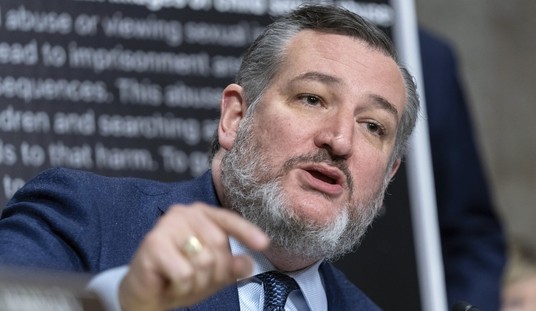The most popular headline following the CBO reports estimating the effects of the Senate GOP’s new health care bill, the Better Care Reconciliation Act, is about the increased number of people who will be uninsured. That’s in keeping with tradition every time new health care legislation is made public and it’s understandable. Most of the headlines are misleading, using the word “lose” when in reality people are projected to choose to go without health insurance.
Perhaps the final health care bill can include a mandate that everyone use a dictionary.
The apparent confusion is derived from the effects of the individual mandate and its repeal. According to health care policy expert Avik Roy, the CBO estimates that scrapping the mandate would result in 18 million fewer people purchasing health care. Regardless of whether the estimate is correct, it makes for some scary numbers when the situation of these people is falsely equated with other situations in which people would actually be unable to purchase health insurance.
Do those 18 million people want to purchase health insurance? Probably. If so, they can do so regardless of the mandate.
If they could afford purchasing health insurance to avoid the penalty that accompanies the mandate, they could afford it without the mandate, because the mandate does not lower the cost of having health insurance — it simply raises the cost of the alternative. Likewise, when the mandate is lifted and 18 million people choose to go without health insurance, it won’t be because it suddenly became unaffordable. It will be because the alternative — going without it — suddenly became cheaper. Hence the CBO’s attributions of the projected uninsured to the mandate’s repeal.
Those who forego insurance when it is not mandated, but want it, and purchase it when it is mandated, did not purchase it when it was not mandated for the simple reason it was more expensive than they considered it to be worth for them. The mandate’s penalty changes the calculation, but only by adding costs.
The dirty little secret is that the Democrats who crafted the so-called Affordable Care Act know this. If the 18 million really went without health insurance because they flat out could not afford it, to mandate coverage or penalize them for a lack of coverage would be to keep them uninsured and take money their money anyway, even though such people are purported barely getting by. That’s cruel.
In actuality, the reasoning is cynical and nanny-state-ish. Many of the people the mandate affects — who forego health insurance, can afford it, but don’t want to foot such a heavy bill — are young, healthy people who are unlikely to need it. The mandate is intended to incentivize young people to purchase it anyway, because they don’t know what’s good for themselves.
A second reason is more sympathetic and understandable: adding young, healthy people to the pool of insured spreads risk, lowering the costs for people who are older and less healthy. Putting this justification for the ACA forward would be honest. It also hasn’t worked. Young people still choose to go without health insurance — in greater rates than Democrats hoped — because it’s expensive and the penalty is more affordable.
This brings us back to costs. All other things equal, the individual mandate does not in anyway bring health insurance to people who need it. It might if were extremely costly, as in the Swiss health care system, but then it really would be cruel to those who would otherwise choose to forego coverage — unless health insurance options were much cheaper, as they are in Switzerland. (Then again, if that were the case, a prohibitively priced mandate penalty would be much less necessary, but let’s not continue to knock Democratic reasoning.)
Based on its title, the Affordable Care Act was intended to deal with problem stemming from unaffordable care. It attempted to do so by making health insurance more affordable and accessible. It hasn’t. It has raised premiums and deductibles, and it has driven numerous insurance providers out of the market, destroying options.
A real fix to the health insurance market would be one that actually lowers costs. A real fix to the health care market might be one that seeks to make care more affordable primarily by means other than insurance (but that’s another story). Criticisms of the GOP reform bills where they fail to do these things are legitimate. Scary headlines about people “losing” their health insurance when it has become no less accessible for them are not.












Join the conversation as a VIP Member